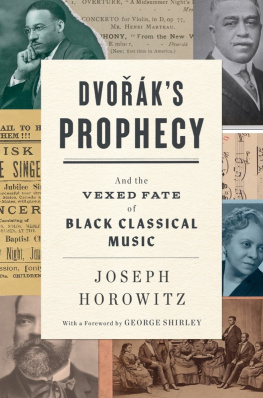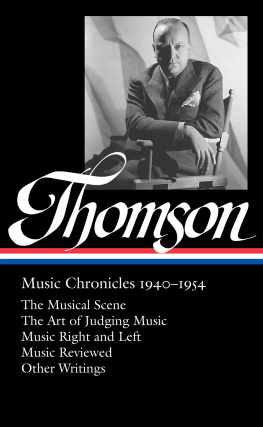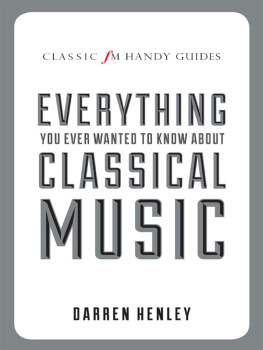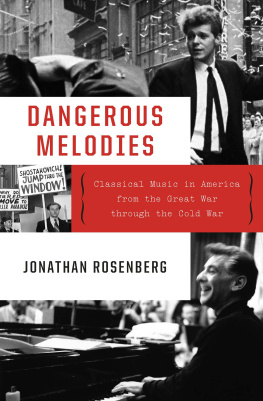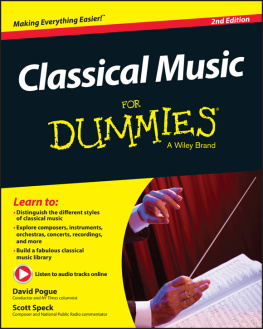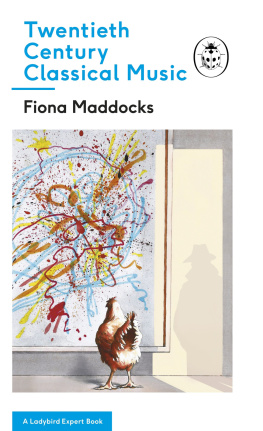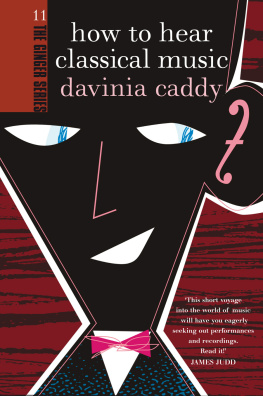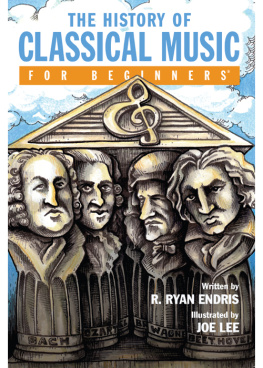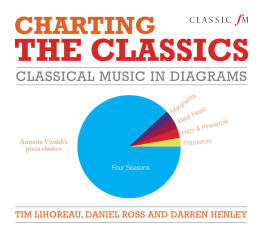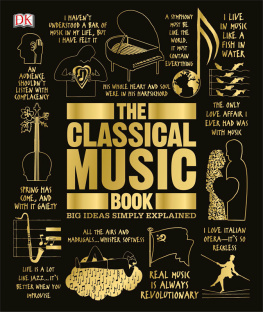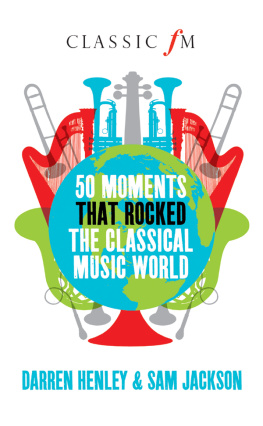Contents
Page-list
Guide

Dvoks
Prophecy
BY THE SAME AUTHOR
Conversations with Arrau (1982)
Understanding Toscanini: How He Became an American
Culture - God and Helped Create a New Audience for Old Music (1987)
The Ivory Trade (1990)
Wagner Nights: An American History (1994)
The Post - Classical Predicament: Essays on Music and Society (1995)
Dvok and America (2003; for young readers)
Classical Music in America: A History of Its Rise and Fall (2005)
Artists in Exile: How Refugees from Twentieth - Century War and
Revolution Transformed the American Performing Arts (2008)
Moral Fire: Musical Portraits from Americas Fin - de - Sicle (2012)
On My Way: The Untold Story of Rouben Mamoulian,
George Gershwin, and Porgy and Bess (2013)
Dvoks
Prophecy

and the Vexed Fate of Black Classical Music
JOSEPH HOROWITZ

Copyright 2022 by Joseph Horowitz
Foreword copyright 2022 by George Shirley
All rights reserved
First Edition
For information about permission to reproduce selections from this book, write to
Permissions, W. W. Norton & Company, Inc., 500 Fifth Avenue, New York, NY 10110
For information about special discounts for bulk purchases, please contact
W. W. Norton Special Sales at specialsales@wwnorton.com or 800-233-4830
Jacket design: Evan Gaffney
Jacket images, clockwise: (Burleigh) Photo by Mishkin, New York / Schomburg
Center for Research in Black Culture, Jean Blackwell Hutson Research and Reference
Division, The New York Public Library; (Dvok symphony) No. 9, E Minor, OP.95, The
New World, flute , 4211106 / Courtesy of the New York Philharmonic Leon Levy
Digital Archives; (Price) G. Nelidoff, University of Arkansas Libraries, MC 988, Box 1,
Folder 12, Item 1; (Jubilee singers) Fisk University / Library of Congress; (Dvok)
Tully Potter / Bridgeman Images; (advertisement) Auburn Avenue Research Library
Historic African American Education Collectors, Box 2, Folder 8, Adam Knight
Spence and John Wesley Work Collection; (Dawson) Tuskegee University Archives
Book design by Chris Welch
Production manager: Lauren Abbate
Library of Congress Cataloging-in-Publication Data
Names: Horowitz, Joseph, 1948 author. | Shirley, George, other.
Title: Dvoks prophecy : and the vexed fate of black classical music / Joseph Horowitz ; foreword by George Shirley.
Description: First edition. | New York : W. W. Norton & Company, 2022. | Includes bibliographical references and index.
Identifiers: LCCN 2021025183 | ISBN 9780393881240 (hardcover) | ISBN 9780393881257 (epub)
Subjects: LCSH: MusicUnited StatesHistory and criticism. | African AmericansMusicHistory and criticism. | MusicUnited StatesAfrican American influences. | Music and raceUnited States. | Dvok, Antonn, 18411904.
Classification: LCC ML200 .H798 2022 | DDC 780.973dc23
LC record available at https://lccn.loc.gov/2021025183
W. W. Norton & Company, Inc., 500 Fifth Avenue, New York, N.Y. 10110
www.wwnorton.com
W. W. Norton & Company Ltd., 15 Carlisle Street, London W1D 3BS
The American mind does not oppose tradition, it forgets it.
GEORGE SANTAYANA
Contents
Dvoks ProphecyDvoks Progeny: Burleigh and Coleridge-TaylorThe Black Symphonists Porgy and Bess The Appropriation Debate
James Gibbons Huneker and the Old GuardIn Defense of Nostalgia Henry Edward Krehbiel and Negro MelodiesThe Fragmentation of Culture
Using the Vernacular: Mark Twain and Charles IvesRace and the Moral CoreThe Transcendentalist Past
The Useless Past: Van Wyck Brooks and the Myth of the Gilded AgeThe Useless Past: Virgil Thomson, Aaron Copland, and the Standard NarrativeLeonard Bernstein and the Ives CaseCopland and MexicoPostscript: The Standard Narrative and the CIA
Why American Classical Music Stayed WhiteWas There a Usable Musical Past?Using Whitman and MelvilleConfluenceThe Souls of Black Folk
Rediscovering William Levi DawsonRediscovering Florence PriceRediscovering Nathaniel DettAmericas Forbidden Composer
The Condition of PastlessnessCulture and Social ControlTrigger WarningsReencountering Harry BurleighReencountering John Singer SargentReencountering Arthur Farwell Porgy and Dvoks Prophecy
A New ParadigmThe Paradigm SummarizedDvoks Prophecy
When I began my career in 1959, there existed only a handful of notable African-American operatic artists, mainly abroad in Europe. Traditionally, American opera companies had been segregated. A rare early instance of acclaimed Black artists performing alongside white singers was Verdis Aida at the Cleveland Stadium Opera in 1932, in which Caterina Jarboro and Jules Bledsoe sang Aida and Amonasro. Sometime later, the New York City Opera began engaging Black singers with regularity. The turning point was Marian Andersons belated Metropolitan Opera debutshe was already fifty-eight years old and past her vocal primein 1955. I joined the Met in 1961 as a result of winning the national auditions, and made my debut there as Ferrando in Mozarts Cos fan tutte in October 1961as it happened, some ten months after Leontyne Prices Met debut in Il trovatore . That same first season, I sang Pinkerton in Madama Butterfly and Alfredo in La traviata and so became the first African-American tenor to sing lead roles at the leading American opera house.
Not long after, I was asked by Nathaniel Merrill if I would consider singing Sporting Life in a production of Porgy and Bess that he was planning to stage during the summer. Merrill was the Mets resident stage director, someone I had worked with. But I refused because I knew the history of Black male operatic singers who after achieving success singing the leading roles in Porgy then found themselves unable to secure contracts for roles in the standard repertoire. I wanted to be recognized as a tenor who could sing Verdi, Puccini, and Strauss, and also Schubert and Schumann. I am reminded of a wonderful cartoon by the Black cartoonist Ollie Harrington. Its set in a meeting room at a universityyou can see the clock tower through a windowwith a long table at which a number of white gentlemen are seated. At the head of the table a Black gentleman is standing with a sheaf of papers in his hand. The chairman of the committee says, Mr. Brown, before you deliver your paper on the effects of gamma rays, how about a good old spiritual? I wanted to disarm that knee-jerk expectation if I could, as I was determined to establish my career as both an interpreter of European classical music and the music of my native heritage.
And so I didnt sing Sporting Life until I was in my late sixtiesin Bregenz, Austria. This was a rather famous Gtz Friedrich production. It turned out to be one of the most thrilling and spiritually satisfying experiences of my career. Ive sung in a lot of opera houses, but Ive never elsewhere had such a feeling of family. It is a memory I will always treasure.
Gershwins masterpiece surpasses all other operas based on American life. It speaks profoundly to the human condition. It explores the same human aspects that define white, brown, red, or yellow life, aspects peculiar to the human animal, ethnic origins notwithstanding. (I prefer the word ethnicity to race because there is only one race and that is the human race.) Porgy and Bess is typically criticized for negative human portraits created by a white composer. But consider Mascagnis C avalleria rusticana and Leoncavallos I pagliacci two of the most beloved verismo operas in the international repertoire. They focus on the dark side of life, as do Verdis Tosca and Puccinis Il tabarro . Bergs Lulu and Wozzeck , William Bolcoms A View from the Bridge and McTeague , and Carlisle Floyds Susannah each reveal blemishes in white life. The images of Blacks in Porgy and Bess bother me much less than many representations of Black life that we see and hear in entertainment media today.

